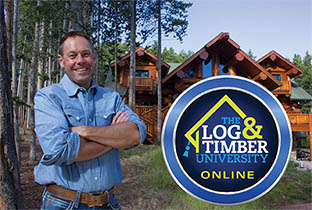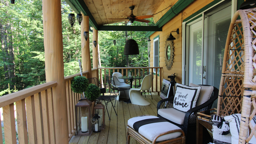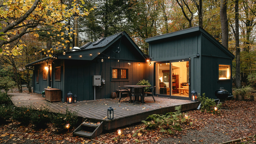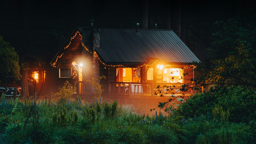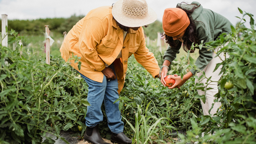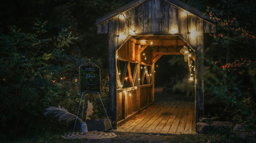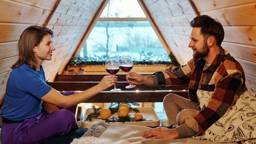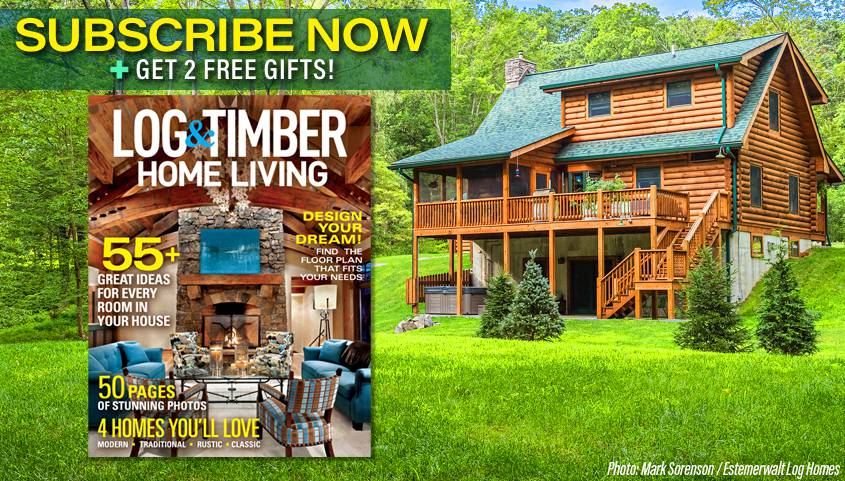
By Danika Kimball
The fast-paced world of today often leaves us yearning for serenity, peace and a reconnection with nature. The idea of moving to a cabin retreat in the wilderness, away from the hustle and bustle of urban life, is not new. Many thinkers, writers and individuals in search of inner peace have opted for such a lifestyle in different periods of history. But why does this notion resonate so much with the contemporary individual? Let's delve into the magic and allure of cabin life in the wilderness and how it paves the way for mindful living.
Benefits of Cabin Living
The Appeal of Simplicity
Living in a cabin means embracing simplicity. There's a certain elegance to a life where you don't possess much, yet you have everything you need. The minimalist setting of a cabin doesn’t allow for many distractions, directing your focus to essential things in life: nourishment, shelter and introspection.
Unplugging from the Digital World
Despite their many advantages, our electronic devices have brought along the ailment of constant connectivity. A cabin retreat offers a genuine opportunity to unplug, providing space and time to reflect, dream and reconnect with oneself. This digital detox can renew mental energy and clarity.
Natural Rhythms and the Body
Without the constant interference of artificial lighting and electronic noises, the body can realign with nature's rhythms. Following the sun's pattern, adjusting to seasonal changes and attuning to the wilderness promotes better sleep, mental health and a deeper understanding of one's place in the universe.
A Laboratory for Self-Reliance
A cabin in the wilderness requires you to be proactive and self-reliant. Whether it's chopping wood for heat, sourcing clean water or tending to a vegetable garden, every task becomes a lesson in survival and independence. Over time, this nurtures a profound sense of accomplishment and capability.
Mindfulness in Every Moment
Nature is the epitome of mindfulness, and living amidst it can inspire us to be present in every moment. The chirping of birds, the rustling of leaves or the gentle lapping of a nearby stream all serve as reminders to stay rooted in the here and now.
Renewed Connection to the Earth
Modern urban living often makes us forget that we're a part of nature, not separate from it. By making a conscious choice to live in a cabin, we can cultivate a renewed sense of unity with the environment. This connection fosters gratitude, respect and a desire to protect our planet.
Room for Creativity
The peace and tranquility of cabin life are conducive to creative thought. Historically, many writers, artists and philosophers have found their muse in the silence and majesty of the wilderness. A cabin retreat can be the perfect haven for unleashing your creative potential.
Planning and Logistics
Moving to a cabin in the wilderness is not as simple as packing a suitcase and heading into the unknown. It's a monumental shift that requires thorough planning and a grasp of certain logistics. Understanding the logistics and having a proper financial plan in mind will be pivotal for making an effective cabin lifestyle change. Here are a few key considerations to keep in mind:
Location Assessment
Before you make the big move, it's crucial to visit and evaluate potential locations. Understand the lay of the land, the accessibility of resources and the possible challenges of the terrain.
Building vs. Buying
Some individuals prefer building their own cabin tailored to their requirements, while others opt for purchasing a pre-existing one. Both choices have their pros and cons, and the decision largely depends on budget, time and personal preferences.
Resource Planning
Living off the grid means you need to think about water sourcing, waste management and energy. Will you have a well? How will you manage sewage? Are solar panels or wind turbines viable for electricity?
Legalities and Permissions
Depending on the region, there may be zoning laws, building permits and other legal requirements. It's essential to be well-acquainted with these to avoid future complications.
Emergency Preparations
Being in the wilderness means you're farther from conventional medical or emergency services. Plan for a comprehensive first-aid kit, learn basic medical procedures and have an evacuation or communication plan in place.
Skill Acquisition
Living in a cabin may require skills you haven't previously nurtured: wood chopping, gardening, basic repairs or even hunting. Consider taking courses or seeking guidance from experienced individuals in these areas.
Downsizing and Essentials
A cabin retreat promotes minimalistic living. Prioritize belongings, take only what's necessary and prepare mentally for a life with fewer material possessions.
Undertaking the transition to cabin life is no small feat. However, with meticulous planning and an understanding of the associated logistics, the dream of a serene, nature-integrated life becomes an achievable reality.
Who Benefits from Cabin Life?
For families and older couples, the transition to cabin living offers a myriad of benefits that go beyond mere escapism. Families often find that the limited distractions cultivate stronger bonds between members.
The simpler environment encourages children to engage in imaginative play, learn hands-on survival skills and develop a profound appreciation for nature from an early age. Shared responsibilities, like tending to a garden or gathering firewood, become valuable bonding activities that teach teamwork and resilience.
For older couples, cabin living can be a serene retreat, offering a peaceful environment to rekindle their bond and relish the golden years. The slower pace can also be therapeutic, alleviating the stresses of urban life and providing ample opportunities for reflection and relaxation. Furthermore, the natural surroundings often inspire healthier living, be it through walks in the woods or consuming freshly grown produce.
In essence, for both families and older couples, the move to a cabin represents not just a change in location but a transformative journey towards deeper connections, holistic well-being and a life enriched by nature's timeless beauty.
Conclusion
Moving into a cabin in the wilderness is not just a geographical shift but a transformative journey for the soul. While it may not be for everyone, those who seek a life of mindfulness, simplicity and profound connection with nature may find their sanctuary in such a retreat. As we face increasing complexities in our modern lives, it's time to consider the therapeutic wonders of the wild and to embrace the profound clarity that only nature can bestow.
